Anasys nanoIR3-s
Nanoscale Tapping AFM-IR Infrared Spectrometer
The Bruker Anasys nanoIR3-s brings together two nanoscale IR techniques: s-SNOM and AFM-IR, building on a legacy of award-winning technology.
- Two complementary nanoscale IR techniques – s-SNOM and AFM-IR
- 10nm resolution chemical and optical property mapping
- nano FTIR high performance broadband spectroscopy
- Full featured AFM, with unique nanoscale property mapping capabilities
Contact us for more information and quotes:
+44 (0)1223 422 269 or info@blue-scientific.com
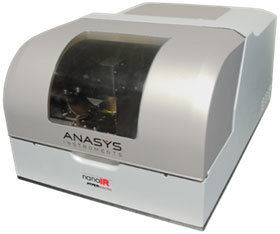
Monolayer Sensitivity
Perform 10nm spatial resolution chemical imaging and spectroscopy. The example below shows a surface plasmon polariton (SPP) on a graphene wedge: s-SNOM phase and amplitude images, together with a 3D view of the phase image.
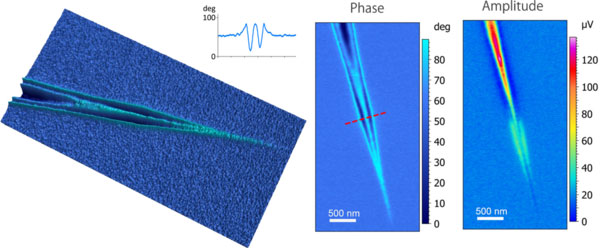
Surface plasmon polariton on a graphene wedge.
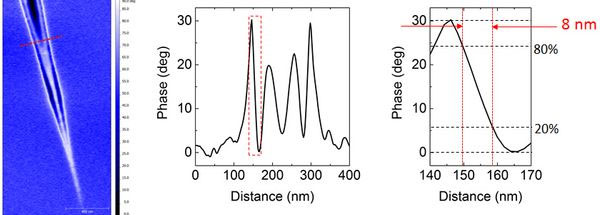
Sub 10nm resolution optical property imaging: A cross-section through the graphene flake.
Correlative Microscopy
- Nano FTIR spectroscopy
- IR SNOM spectroscopy with the most advanced nanoIR laser source available
- Nano FTIR spectroscopy with integrated DFG, continuum based laser source Broadband synchrotron light source integration
- Multi-chip QCL laser source for spectroscopy and chemical imaging
The example below shows molecular vibrational information, acquired with ultrafast-broadband scattering SNOM spectroscopy. The laser interferogram (top) of Polytetrafluoroethylene (PTFE) shows coherent molecular vibration in the form of free-induction decay in time domain. The highlighted section is caused by the beating of symmetric and antisymmetric C-F modes, resulting in the frequency domain (bottom left). The bottom right shows data for a monolayer pNTP, demonstrating monolayer sensitivity.
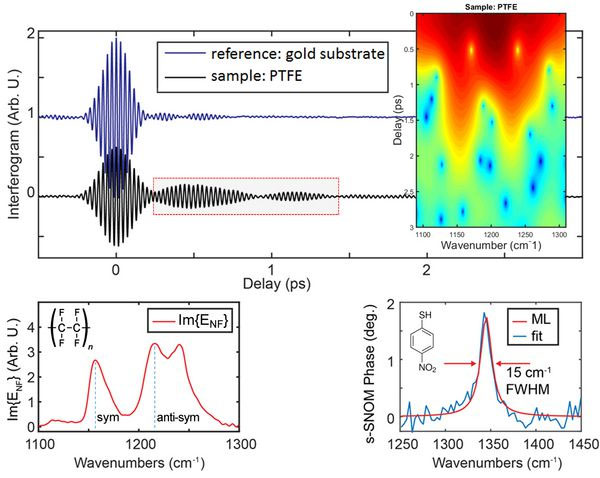
Courtesy of Prof. Markus Raschke, University of Colorado, USA.
POINTspectra Technology
Using POINTspectra lasers, you can perform spectroscopy and high resolution optical property mapping across a broad range of wavelengths:
- Using an AFM image, set the area to be measured
- Measure the spectroscopy and select a wavelength of interest
- Generate a high resolution optical property map
10nm spatial resolution images of amplitude and phase are rapidly measured from interferograms over a range of wavelengths. This enables 10nm resolution Tapping AFM-IR for complementary, unique IR spectroscopy.
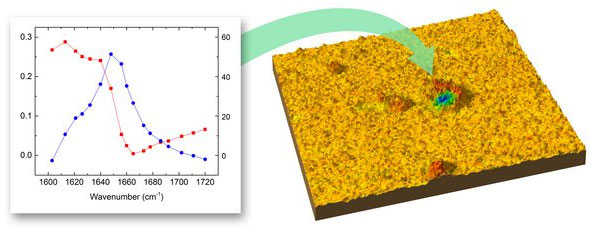
Applications
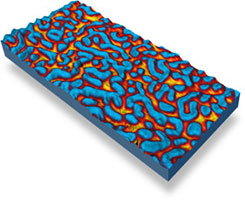
Polymeric Thin Films, Monolayers and Blends
- Model-free nanoscale FTIR spectra for a large variety of polymers.
- Nanoscale FTIR spectroscopy data correlates directly to bulk FTIR databases.
- Highest resolution chemical and material property mapping possible today: resolution to 10 nm.
- See also mechanical property mapping below.
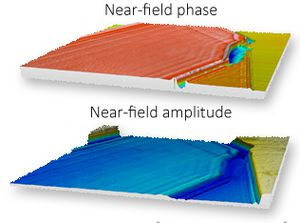
2D Materials and Nano-Photonics
- Unique scattering SNOM capabilities
- Characterise nanoscale optical, chemical and material properties
- Analyse a wide range of new 2D and quantum materials
- Unmatched nanoscale IR spectroscopy with complementary AFM-IR
![]()
Semiconductor Failure Analysis
- Complete nanoscale FTIR, nanoscale chemical imaging and materials characterisation
- Two complementary nanoscale IR techniques: AFM-IR and scattering SNOM, together with AFM based materials property mapping.
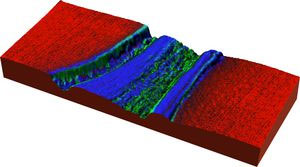
Mechanical Property Mapping
With Lorentz Contact Resonance (LCR), materials are differentiated by their viscoelastic properties. This maps the distribution of components on a sample, and enables the probe to be positioned precisely for chemical and/or thermal analysis. Using Anasys’ unique self-heating ThermaLever probes, you can also measure temperature-dependent mechanical properties – useful for polymer blends, multi-layer films, composite materials and life sciences.

